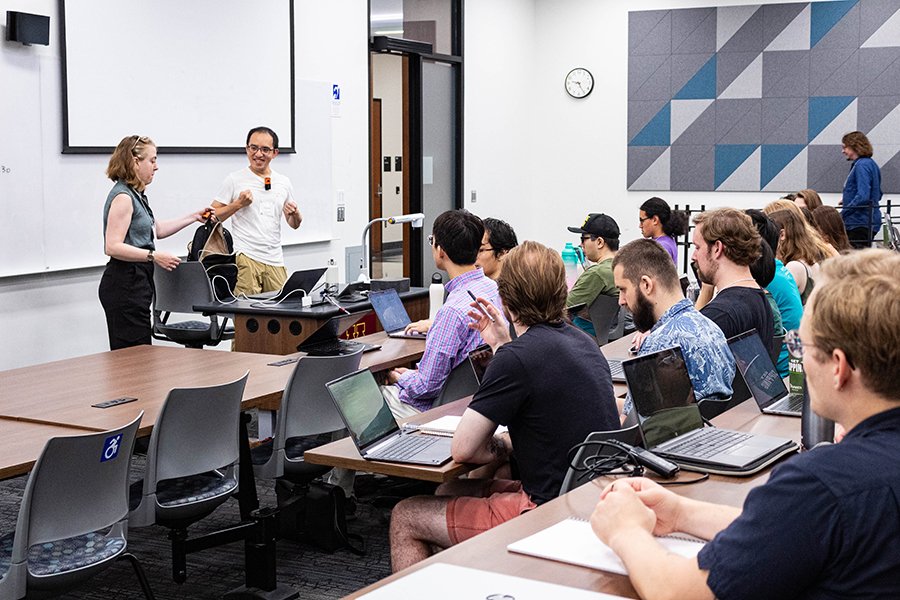CS&E Hosts School on Univalent Mathematics

Department of Computer Science & Engineering’s Kuen-Bang Hou (Favonia) co-organized and hosted a School on Univalent Mathematics event from July 29 - August 2 at the University of Minnesota in Lind Hall. This was the fourth Univalent Mathematics event from the program and the first event hosted in the United States. Over the week, 46 students attended seminars on Univalent Foundations, an alternative foundation of mathematics that was created by Vladimir Voevodsky.
“This is the first time that we’ve had this event in the U.S.,” said Favonia. “We were very excited to host in the U.S. because in the past iterations, people flew from the U.S. and we weren't able to fund them properly.”
Univalent Mathematics students from math departments, computer science departments, and sometimes philosophy departments learned how to formalize mathematics on computers. They also learned how to formalize logical reasoning on a computer in a way that the computer can check the correctness of the reasoning steps. Students also had a chance to practice what they learned during problem-solving sessions as part of the program.
“This is a community-building event,” said Favonia. “We want to build a community that combines strengths of multiple disciplines and different areas. We need insights from mathematicians on foundational theories, and knowledge from computer scientists on programming, to build novel proof-checking tools. On the other hand, we want to enable mathematicians who traditionally use paper and pen to use computers as one of their exploration tools, and we want to help computer scientists with more interest in theory to gain a new way to rethink logic. I think these interactions are the main reason why we even exist, and we need to continue building a community that supports such interactions.”
With the positive turnout of this event, the Univalent Mathematics program is hoping to host more U.S.-based events in the near future. The Univalent Mathematics program is extremely thankful to the National Science Foundation (NSF) for funding to host this event at the University of Minnesota.